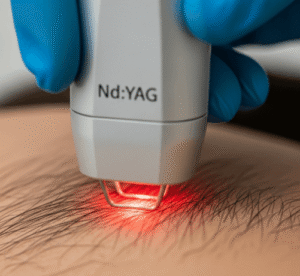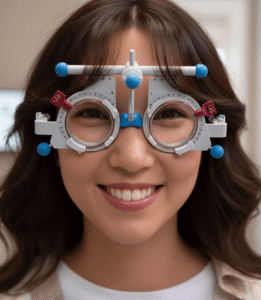Overview
Heavy periods, medically referred to as menorrhagia, are characterized by excessive menstrual bleeding that lasts longer than usual or requires frequent changing of sanitary products. While many women experience variations in menstrual flow, heavy periods can interfere with daily life, cause fatigue, and sometimes indicate underlying health issues.
In South Korea, gynecology clinics and hospitals provide comprehensive evaluation, diagnosis, and treatment for heavy periods, combining medical, hormonal, and surgical approaches to manage symptoms effectively.
Key Facts
🟢 ➤ Menorrhagia is defined as bleeding exceeding 80 ml per cycle or lasting more than 7 days.
🟢 ➤ Common symptoms include soaking through pads/tampons every 1–2 hours, passing large blood clots, and prolonged bleeding.
🟢 ➤ Causes range from hormonal imbalances to structural abnormalities in the uterus.
🟢 ➤ Heavy periods can lead to anemia, fatigue, and decreased quality of life.
🟢 ➤ Diagnostic tools include pelvic exams, ultrasound, blood tests, and sometimes hysteroscopy.
🟢 ➤ South Korean gynecologists offer personalized treatments including medications, hormonal therapy, and minimally invasive procedures.
What are Heavy Periods?
Heavy periods occur when menstrual bleeding is abnormally high or prolonged, sometimes significantly impacting physical and emotional well-being.
Key points:
➤ Flow may require changing sanitary products every 1–2 hours.
➤ May be accompanied by large blood clots, cramping, and fatigue.
➤ Often distinguished from normal variations in menstrual flow by duration, intensity, and impact on daily activities.
➤ Can occur sporadically or regularly, depending on underlying causes.
Symptoms Related to Heavy Periods
Symptoms may include:
🟢 ➤ Soaking through pads or tampons quickly (every 1–2 hours).
🟢 ➤ Passing large blood clots during menstruation.
🟢 ➤ Menstrual bleeding lasting longer than 7 days.
🟢 ➤ Severe menstrual cramps or pelvic pain.
🟢 ➤ Fatigue, weakness, or lightheadedness due to blood loss.
🟢 ➤ Emotional symptoms such as irritability, mood swings, or anxiety.
🟢 ➤ Shortness of breath or palpitations in cases of severe anemia.
Causes / Possible Causes
Heavy periods may result from hormonal, structural, systemic, or medication-related factors:
Hormonal Causes
➤ Imbalance between estrogen and progesterone during the menstrual cycle.
➤ Polycystic ovary syndrome (PCOS).
➤ Thyroid disorders.
Structural Causes
➤ Uterine fibroids or polyps.
➤ Adenomyosis (uterine lining growing into the muscle wall).
➤ Malformations of the uterus.
Medical and Systemic Causes
➤ Bleeding disorders such as von Willebrand disease.
➤ Liver or kidney disease affecting clotting.
➤ Medications like anticoagulants or hormonal therapies.
Other Causes
➤ Perimenopause hormonal changes.
➤ Post-surgical or post-pregnancy uterine changes.
➤ Infections of the reproductive tract (rarely).
When Should I See a Doctor?
Medical consultation is advised if:
🟢 ➤ Bleeding interferes with daily activities or work.
🟢 ➤ Passing large clots or soaking pads/tampons frequently.
🟢 ➤ Symptoms of anemia appear, such as fatigue, pallor, or shortness of breath.
🟢 ➤ Bleeding occurs irregularly or between periods.
🟢 ➤ There is pelvic pain, unusual discharge, or suspected infection.
Early evaluation ensures accurate diagnosis, prevention of complications, and appropriate treatment.
Care and Treatment
Management depends on the underlying cause, severity, and patient preference:
Lifestyle and Self-Care Measures
➤ Iron-rich diet or supplementation to prevent or treat anemia.
➤ Pain management with NSAIDs for cramps and discomfort.
➤ Tracking menstrual cycles to monitor patterns and severity.
Medical Management
➤ Hormonal therapy (oral contraceptives, progestins, IUDs with progesterone).
➤ Medications to reduce bleeding or correct clotting disorders.
➤ Antibiotics if infection is identified.
Surgical or Advanced Interventions
➤ Hysteroscopic removal of fibroids or polyps.
➤ Endometrial ablation to reduce uterine lining.
➤ Hysterectomy in severe or refractory cases.
Advanced Care in Korea
➤ South Korean gynecology centers provide state-of-the-art imaging, minimally invasive surgery, and personalized hormonal therapy.
➤ Patient education includes menstrual tracking, diet and lifestyle advice, and follow-up care.
➤ Focused on restoring normal menstrual function, relieving symptoms, and improving quality of life.
Highlights (Clean Green Arrow Version)
🟢 ➤ Heavy periods (menorrhagia) involve excessive or prolonged menstrual bleeding, sometimes disrupting daily life.
🟢 ➤ Symptoms: soaking pads/tampons frequently, large clots, prolonged bleeding, cramps, fatigue, and anemia.
🟢 ➤ Causes: hormonal imbalance, uterine fibroids or polyps, bleeding disorders, thyroid issues, or medications.
🟢 ➤ Seek medical care if bleeding is heavy, prolonged, irregular, or causing anemia.
🟢 ➤ Treatment includes lifestyle measures, hormonal therapy, medications, and minimally invasive or surgical procedures.
🟢 ➤ South Korea offers advanced gynecological care with accurate diagnosis, modern treatment, and patient-centered guidance.













